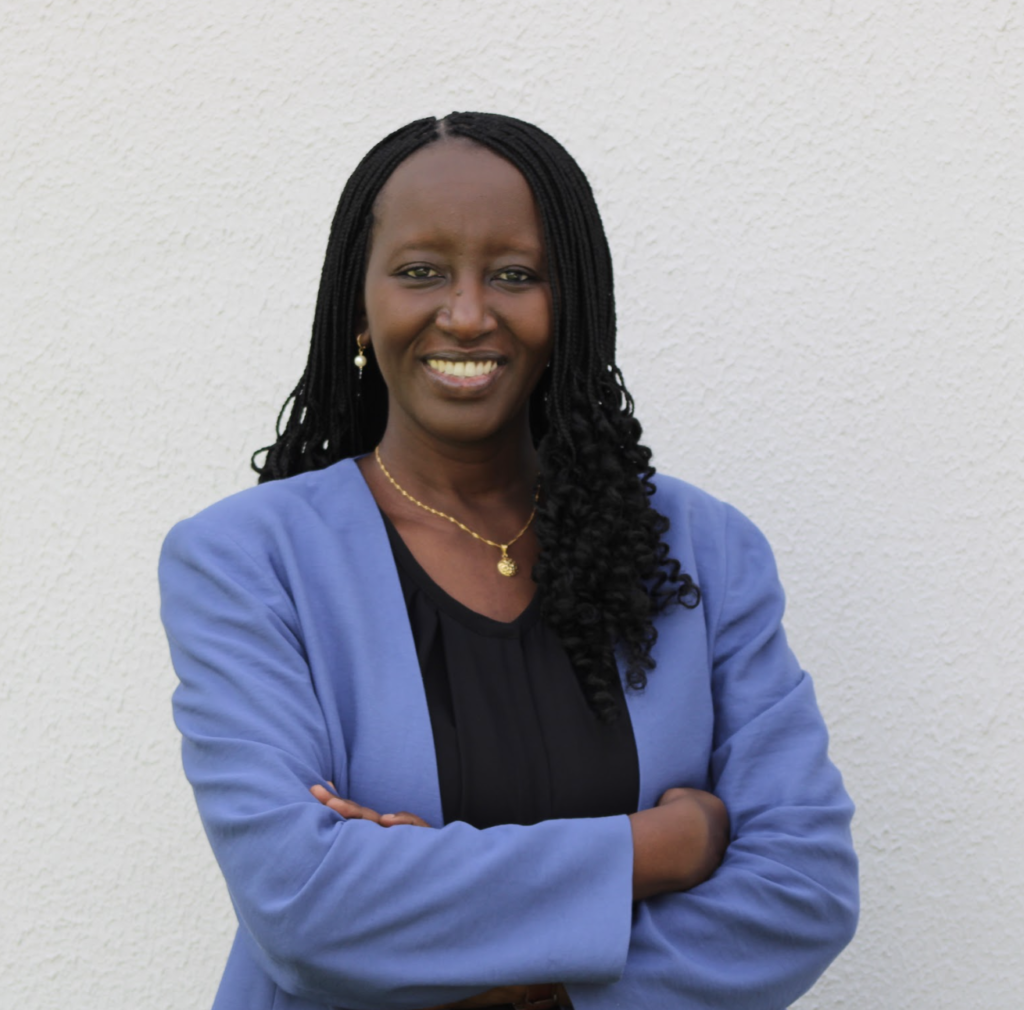One of the disadvantages of being a first-generation college student is not knowing what you don’t know. One of the advantages of being a first-generation college student is not knowing what you don’t know.
You read that right! The fact that you don’t have the necessary knowledge can work against you or in your favor depending on how you choose to approach your particular circumstance.
As a community college student, I chose to ask for help at every turn, not because it was easy but because it was necessary. That’s how I learned, integrated, and, soon, excelled.
At first, I felt fearful, doubtful, and intimidated by attending community college. After all, I was a high school dropout, a first-generation college student with a weak academic background and many personal responsibilities as a wife and the mother of three children.
I chose to ask for help anyway. If I had any chance of making progress in my learning, I needed support and a lot of it.
In my earlier blog article, “How to Power Through Feeling Out of Place at Community College: 7 Tips”, I touched on how I asked for help during my first year at Community College of Philadelphia. Here I’d like to explore that topic further.
Asking for help can take you from weak academic skills to excellence, from not knowing how to pay for your studies to securing financial aid and scholarships, from feeling out of place at your college to being a fully involved member of your campus community. In the process, you’ll build or strengthen other skills without even realizing it, among them confidence, communication, and resilience.
#1 Your Academic Progress Depends on Asking for Help
Let’s talk about how you can go from weak academic skills to excellence by asking for help. Reading, writing, and math are important areas of study in your community college career. You can stay on track with your studies and improve your reading, writing, and math skills by leaning on key resources at your college.
Four Key Resources to Help You
- Yourself
- Your Professors
- Your Tutors
- Your Academic Advisors
Yourself
Your first and most important resource is yourself. Your level of commitment to your education will determine how far you’ll go in your academics. If you keep trying, day in and day out, if you ask for support and follow through on it, if you refuse to give up, no matter what, nothing will be a permanent barrier, just a roadblock to get over.
Your Professors
Your second key resource is your professors. Gauge your academic needs, talk to them about it, and ask them where and how to get the necessary support. Remember, most professors teach because they want to have a positive impact on their students’ lives, so the majority of them will be willing to point you in the right direction.
Your professors generally have office hours when you can discuss your specific request. For example, for my English 101 class at community college, I attended office hours to get feedback and edits from my professor on the different essays she assigned. The professor’s guidance allowed me to clarify my topics, recognize structural issues with my sentences (such as where I needed to add transition words, like “however,” “in addition,” “moreover”) and improve my punctuation and grammar (such as using coordinating conjunctions like “and” or “but” correctly). These small and consistent improvements in my writing compounded over time and led me to become a better writer in my English 101 class and beyond.
Your Tutors
Tutors at your community college are a third key resource to help you improve in your academics. Tutors can support you on many subjects, including your paper assignments. They can help you brainstorm an essay topic for your English paper, outline it and edit an early draft, clarify class reading materials you don’t completely understand, and point you to people who can further assist you.
Tutors can go over math problems with you and practice with you repeatedly until you grasp the underlying concepts. If you’ve been out of school for a while as I was, you’re likely to need all the support in math you can get. Though it takes time to learn and relearn math, once you start discussing and practicing problems repeatedly with a tutor, you’ll find yourself starting to grasp processes and ideas that at first seemed completely incomprehensible.
All you need to do is find out the tutors’ schedules, show up with your specific questions and commit to attending sessions on a weekly basis, and learn with an open mind. If you stick with the process, understanding will come.
I received tutoring support at community college in reading, writing, and math, which allowed me to establish a solid foundation for my academics and eventually led me to perform well in my courses, regardless of the subject. But keep in mind that all three subjects require repeated and consistent practice — and that means you have to keep applying yourself to them throughout your time at community college and beyond.
Your Academic Advisors
Academic advisors are a fourth key resource to help you in your learning. If you’re considering a certain major, for instance, you can discuss with your academic advisor not only the reasons for your choice but what courses will be required, how many classes to register for per semester, how to stay on track to graduate, and how to transfer to a four-year university. I met with my academic advisor at community college at least twice per semester.
My academic advisor was most helpful in my course selection each semester, by keeping me focused on classes appropriate to my international studies major. That support led me to graduate within my target time frame, which was two to three years (I ended up graduating in two and a half years). Academic advisors keep you accountable in your learning, which is critical to your progress as a student.
- How often will you attend your professor’s office hours to ask your questions and get feedback on your work?
- How often will you attend tutoring sessions for English and math?
- How often will you meet with your academic advisor to discuss your questions about course selection and registration?
#2 Paying for Your Education Depends on Asking for Help
Let’s discuss how to get financial aid. College is expensive, so be prepared to ask for help in paying for it.
When I enrolled at community college, I met with financial aid advisors often to talk about how to pay for my classes. I couldn’t pay for them myself, and neither could my husband, so I needed to learn about financial aid, scholarships, and student loans.
I decided that student loans were not an option for me because I didn’t want to add financial burdens to my already low-income family. That meant I focused on financial aid and scholarships based on my academic performance. That’s how I managed to pay for my studies, from community college straight through to the master’s degree.
Think about your specific financial needs, ask financial aid advisors how you can get help paying for your education, and implement the steps they recommend. If you’re doing well in your academics by maintaining As and Bs in your courses, you may find a scholarship based on your academic performance rather than (or in addition to) your financial need. Apply for all of them that are appropriate to your situation; apply, apply, and apply. That’s what I did at community college and ended up receiving the necessary financial support.
- How do you plan to pay for your education?
- What questions do you have for your financial aid advisor?
- What scholarships are you going to apply for?
#3 Your Learning Experience Depends on Asking for Help
Let’s address how you can go from feeling out of place to being a fully involved member of your campus community by participating in extracurricular activities. When I was at community college, I had little time to spare for extracurricular activities.
My days were split among four responsibilities: taking care of the house and preparing meals, supporting my three children in their schooling and their after school activities; my studies, both in and outside of the classroom; and a part-time job. So adding an extracurricular activity to my long list of responsibilities didn’t seem feasible. But I did it away, and here’s how.
● I thought carefully and strategically about what extracurricular activity interested me the most and why.
● I asked myself how I could squeeze that extracurricular activity into my already packed schedule and make it work.
● I considered how the extracurricular activity could both contribute to the college community and enhance my learning.
I chose to volunteer to write for the student newspaper at our community college. At first, I was intimidated by the idea of writing for an audience of thousands. Up to that point, only my English professors and tutors had read my writing. However, this decision allowed me to improve in my writing throughout my time at community college. I learned to write fast regardless of my location and to craft articles that informed the college community. I also became better integrated into my school through the many connections I built along the way.
I ended up becoming a staff writer for our student newspaper and stuck with the position for seventeen months. This was one of my best decisions as a student!
- What one extracurricular activity do you want to get involved in at your college and why?
- How could that extracurricular activity improve your learning experience while also contributing to your college?
- Who will you ask for information about how to get involved in that extracurricular activity, and what steps will you take afterwards to begin participating?
Reflection Exercise of the Month
Each of the three areas discussed above—academic progress, financial aid, and extracurricular activity — was followed by a series of questions. For each area, select two of those questions, get your notebook and pen, and reflect on those questions in the month to come.
Week 1
Monday: Write a five-minute reflection on the first question you selected for tip #1.
Tuesday: Write a five-minute reflection on the second question you selected for tip #1.
Week 2
Monday: Write a five-minute reflection on the first question you selected for tip#2.
Tuesday: Write a five-minute reflection on the second question you selected for tip #2.
Week 3
Monday: Write a five-minute reflection on the first question you selected for tip #3.
Tuesday: Write a five-minute reflection on the second question you selected for tip #3.
Week 4
Monday: Building on your reflections, put together a plan for how you’ll seek help at your college.
Tuesday: Start implementing your plan for academic progress and excellence at community college.
That’s it for this article on seeking help at community college. You have what it takes to achieve any level of academic progress you desire. Your willingness to ask for help, your ability to take full advantage of the resources available to you, and your consistent hard work will yield results beyond your imagination.
If you find this article helpful, share it with community college students and invite them to subscribe to my newsletter.
Do you want to know more about how I went from a high-school dropout to a master’s degree? Grab a copy of my memoir, Destined: A Story of Resilience and Beating the Odds, set for release in February 2025. I would appreciate your review of it when it appears on Amazon!
Thank you for reading. Wishing you all the best.
Keep going!

Hi, I’m Aminata Sy. I’m the author of the memoir Destined: A Story of Resilience and Beating the Odds, in which I write about how I started out in America as a high-school dropout and non-English-speaking immigrant and yet went on to earn a high-school equivalency diploma and associate’s, bachelor’s, and master’s degrees and to land a dream career. All that time, I was a wife and mother too and had plenty of family responsibilities. I help community college and university students excel in their education, so they can transform their lives for the better. Subscribe to my newsletter here: aminatasy.com/join-newsletter.
Subscribe to my Newsletter
Join our newsletter to receive monthly exclusive insights and wisdom from Aminata Sy, whose incredible journey of self-transformation has moved and inspired thousands. Aminata offers tips to community college and first-generation Ivy League students on learning, writing, reading, and resilience. You can unsubscribe at any time.

